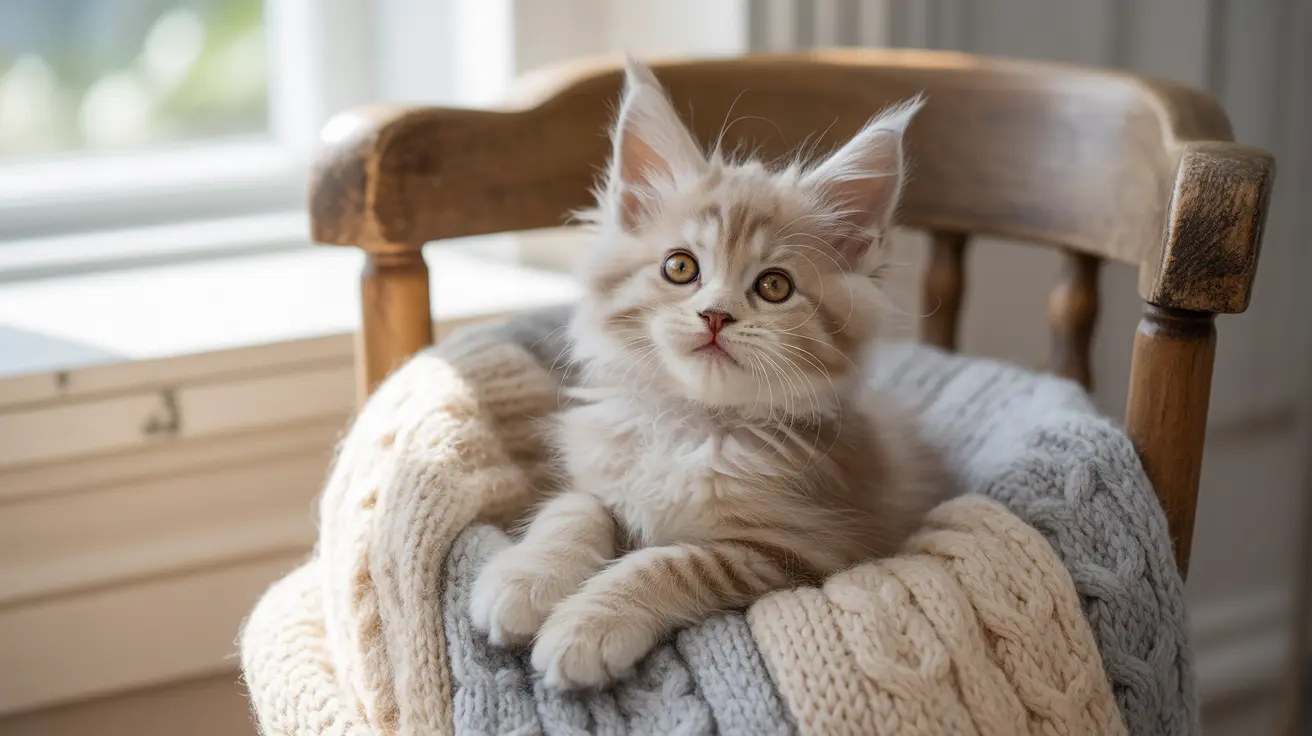Fading kitten syndrome (FKS) is a critical condition that can affect newborn kittens during their first weeks of life. This potentially fatal condition requires immediate attention and understanding from cat owners, breeders, and veterinary professionals. With mortality rates reaching up to 30% in neonatal kittens, recognizing the early warning signs and knowing how to respond can mean the difference between life and death.
In this comprehensive guide, we'll explore what fading kitten syndrome is, its causes, symptoms, and the crucial steps needed for prevention and treatment. Whether you're a breeder, foster parent, or cat owner, this information could help save a kitten's life.
What is Fading Kitten Syndrome?
Fading kitten syndrome isn't a single disease but rather a collection of symptoms that indicate a kitten's rapid health decline. It typically affects kittens from birth to weaning age (around 4-5 weeks), with the first week being the most critical period. Despite appearing healthy at birth, affected kittens suddenly begin to fail to thrive, showing concerning symptoms that can progress rapidly.
Common Causes and Risk Factors
Multiple factors can contribute to fading kitten syndrome, making it crucial to understand the potential triggers:
Infectious Causes
- Bacterial infections (E. coli, staphylococci)
- Viral infections
- Parasitic infections
Environmental Factors
- Hypothermia
- Poor sanitation
- Overcrowding
- Sudden temperature changes
Medical Conditions
- Congenital defects
- Birth complications
- Neonatal isoerythrolysis
- Malnutrition
Recognizing the Warning Signs
Early detection is crucial for survival. Watch for these critical symptoms:
Early Warning Signs
- Insufficient weight gain
- Lethargy
- Difficulty nursing
- Separation from littermates
Advanced Symptoms
- Low body temperature
- Pale or bluish gums
- Dehydration
- Continuous crying or weakness
Treatment and Emergency Care
When fading kitten syndrome is suspected, immediate action is essential. Treatment typically involves:
Immediate Interventions
- Warming the kitten safely
- Providing proper hydration
- Ensuring adequate nutrition
- Monitoring vital signs
Professional Care
- Veterinary examination
- Diagnostic testing
- Targeted treatment for underlying causes
- Supportive care
Prevention Strategies
While not all cases can be prevented, several measures can reduce the risk:
- Regular veterinary care for mother cats
- Maintaining optimal environmental conditions
- Daily weight monitoring
- Proper nutrition and supplementation when needed
- Clean, stress-free living conditions
Frequently Asked Questions
What are the early signs and symptoms of fading kitten syndrome to watch for in newborn kittens?
Early signs include lethargy, poor weight gain, difficulty nursing, separation from littermates, and decreased body temperature. Any kitten showing these symptoms requires immediate attention.
What causes fading kitten syndrome and how can I reduce the risk in my cat's litter?
Fading kitten syndrome can be caused by infections, environmental stressors, congenital defects, or maternal issues. Reduce risks through proper prenatal care, maintaining optimal environmental conditions, and ensuring adequate nutrition.
How is fading kitten syndrome diagnosed by veterinarians in neonatal kittens?
Veterinarians diagnose FKS through physical examination, medical history review, and potentially blood work, imaging, or other diagnostic tests to identify underlying causes.
What treatment options and supportive care are effective for kittens suffering from fading kitten syndrome?
Treatment includes immediate warming, hydration, proper nutrition, and addressing any underlying causes. Veterinary care is crucial and may include antibiotics, fluid therapy, or other targeted treatments.
How can I prevent fading kitten syndrome and ensure the healthiest environment for newborn kittens?
Prevention involves maintaining proper environmental conditions, ensuring good maternal health, regular monitoring of kittens' weight and behavior, and prompt veterinary care when concerns arise.
Fading kitten syndrome is a serious condition that requires vigilance and quick action. By understanding its causes, recognizing early warning signs, and knowing how to respond, caregivers can improve outcomes for affected kittens. Remember that professional veterinary care should always be sought when FKS is suspected, as early intervention provides the best chance for survival.






